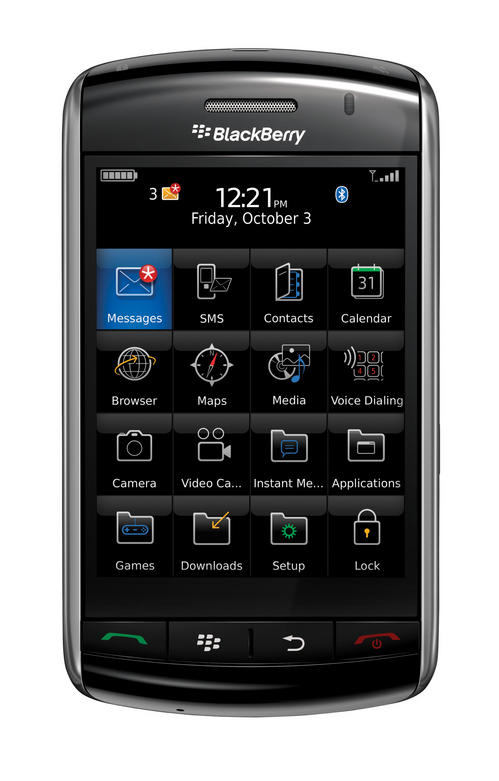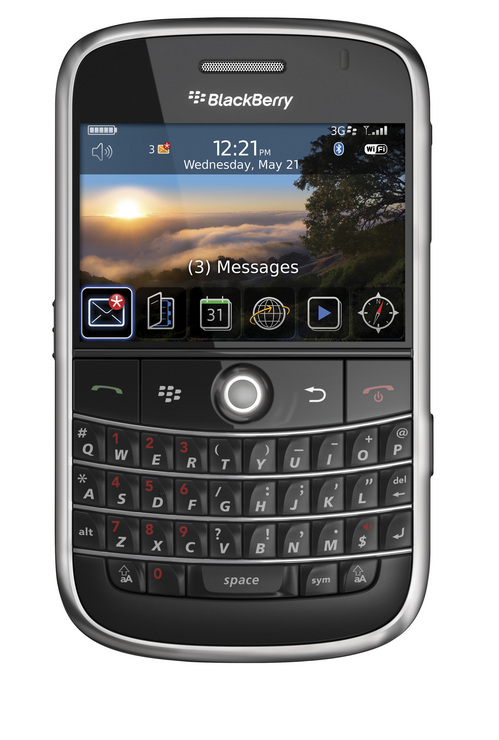I have noticed the Blackberry Storm has improved a good deal over past weeks but this it seems is not enough to keep people from returning these handheld computers at a record clip. While it is impossible to know for sure if the Storm return rate is higher than it is for other devices, Silicon Valley Insider says it is surprisingly easy to find people sharing their device return intentions on Twitter.
Here is what I am hearing. People find the device difficult to use and confusing. There is a learning curve and if people get past it many do seem to like the device.
The biggest problem for RIM? Simple. They make devices with such great keyboards that people have real trouble giving them up. You see, many Storm purchasers are upgrading their old keyboard-based Blackberrys. Still, if you want that big screen and small form factor you have to go touch screen – at least for now.
And herein lies the problem with smartphones. There is still no perfect device. The iPhone may be the best browsing device around but the lack of the keyboard is a major problem for people like me who want to really type on the device.
Lurking in the shadows of this conversation is Skyfire, the company who makes a great browser for Windows Mobile and other devices and keeps improving it. This browser allows phones based on the pocket-sized Microsoft OS to emulate an iPhone’s Safari browser but go one step further – allowing multimedia files including Flash and Joost to be experienced in full. You can’t pinch the screen to shrink it but you can get much of the functionality of your favorite Apple gadget. The best part is now that HTC is taking the Apple threat seriously they are producing phones with resolutions even greater than the once record setting iPhone. Still, HTC devices – in part because of the underlying Windows or Google OS are not as easy to use as the iPhone.
Then there are the application store wars. Applications are important. In fact they can be the reason your platform lives or dies. We saw this repeatedly played out in the PC market. Jon Arnold even blames Nortel’s current financial problems on a lack of attention to a developer program (I agree this is part of the problem – especially when you consider Avaya has recently signed on thousands of partners at a clip while Nortel’s partner program seems to have no reason to exist).
Here is an excerpt from the article:
Avaya (News – Alert), he says “has stuck to its knitting,” focusing on its core products, aggressively expanding its application developer ecosystem, and concentrating on marketing through its channels, none of which Nortel has done.
The point is, the smartphone is a platform and the platform with the best apps will win this war. My wife was 100% sure she would buy a Storm a month ago. After trying it for a few minutes she got frustrated and gave up. She just picked up an iPhone. She told me with certainty she didn’t need any applications on her phone but now she is asking me about the apps I have downloaded. I don’t expect the two of us to be performing Ocarina duets in the near future but I have noticed she is using these applications.
What this tells me is the apps are crucial. Experience tells us this is true and now that I have witnessed her use of the device firsthand, it just confirms what experience dictates. In addition, smartphones have finally gotten to the point where they are sticky. You see, you can’t leave your favorite smartphone platform if your favorite apps are not supported on another phone.
This means that customers are locked into their devices for the first time. This is a new concept and for AT&T and Apple in the US it equates to dollar signs. (Alert – in France the Orange/Apple exclusive iPhone agreement has been ruled illegal)
It also shows companies like RIM that while the device is important – and I have no doubt the Storm will get better, the applications are more important than ever. Companies need to foster their development community like never before and they need to do it quickly because as the iPhone continues to take share, it will become the defacto development platform for many developers who will never have time to look at Windows Mobile, Palm, Symbian, Android, etc.




Ann Mobile
December 18, 2008 at 12:03 pmAwesome!
Ann
iperinfo.com
Related Articles
Rich Tehrani Link Page
GTT Communications: Pioneering the Future of Managed Network and Security Services
NTIA Announces Key Details for $42.5B BEAD Program: Emphasizing Digital Equity